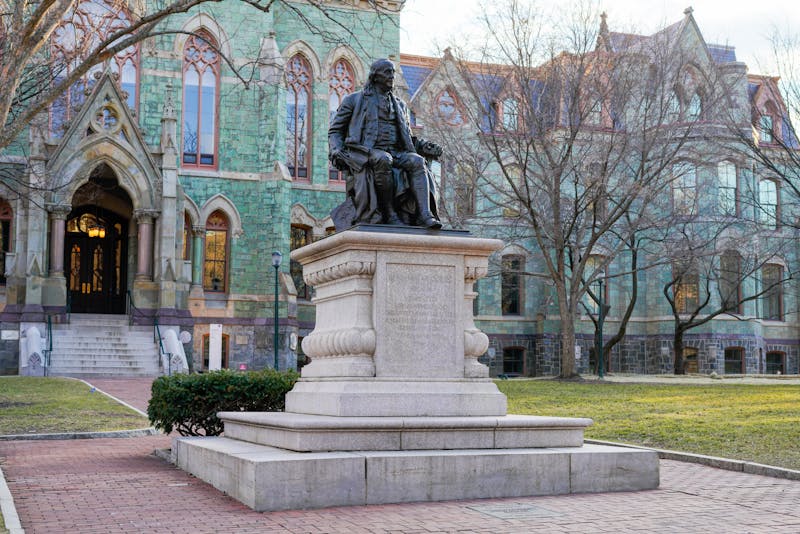
Former National Security Advisor John Bolton spoke to students about the current state of American foreign policy at a Penn Political Union event on Wednesday evening.
Approximately 150 students gathered in Irvine Auditorium to attend the event, which was moderated by PPU President Lexi Boccuzzi — a deputy opinion editor at The Daily Pennsylvanian. The event featured an interview between Boccuzzi and Bolton, followed by Bolton answering questions from audience members about topics ranging from the Russian-Ukrainian war to his relationship with former President Donald Trump.
Bolton, known for his conservative foreign policy views, served as the Trump administration’s third national security adviser for 17 months before he was fired by the former president due to a string of disagreements on foreign policy matters.
In his discussion with the DP and the board of the PPU prior to the event, Bolton touched on a wide variety of foreign policy issues – including the Abraham Accords, Russia’s invasion of Ukraine, and the status of nuclear weapons across the world. Bolton also spoke about the United States’ decision to withdraw troops from Afghanistan, which he stated was a “problematic” decision.
“The reason people believed for a long time that we could get out of Afghanistan was because they weren’t hearing from responsible political leaders about the issue,” Bolton told the DP.
The event began with Bolton addressing Russia’s recent invasion of Ukraine. Bolton said that he believed President Joe Biden should have taken stricter measures against Russia.
Bolton also criticized the effectiveness of Russia’s military. He referred to the Russian military’s performance throughout the war in Ukraine as a “catastrophic failure.”
“I don’t think Putin has any intention of a serious negotiation [with Ukraine] unless he sees some sort of military victory,” Bolton said.
The United States has given an estimated $2 billion in aid to Ukraine since Biden was inaugurated as president. Bolton said he believes that it is questionable how far the United States' aid to Ukraine will go.
“We’re in a race against time whether the supplies we’re sending in will be sufficient to keep the Ukrainian military going, or if the Russian military can regroup, resupply, and get their wits together,” Bolton said. “We don’t know the answer to what will happen.”
Bolton then addressed the ongoing issue of the growth of nuclear weapons across the world.
He said that as North Korea “gets close” to deliverable nuclear weapons, other countries will develop nuclear weapons as a result.
He added that the issue has to do with whether North Korea will use the weapons, but also assessing who they may sell their weapons to.
Bolton also spoke about his tumultuous relationship with Trump. When Bolton served as Trump's national security adviser, the two disagreed about how to handle foreign policy issues in countries like Afghanistan and North Korea. While Bolton said that he agreed with many of Trump’s decisions while in office, he explained that he found faults within the former president’s logic.
“Trump did not think in terms of philosophy and policy,” Bolton said. “His decisions depended on the time of day you ask him or who the last person in the room was before the decision. It was fortunate that we didn’t have a crisis more acute than COVID-19 during his time in office, and he didn’t handle that well.”
Bolton said he does not think Trump will run for re-election in the future, because Bolton believes Trump will not want to publicly lose the election again.
College senior and Libertarian Caucus Chair of the Penn Political Union Adam Robbins told the DP he first reached out to Bolton last summer to ask him to speak at Penn. Robbins said wanted Bolton to speak because he believes both the Trump and Biden administrations have brought the discussion of foreign policy to the forefront of American political discourse.
“I think that we were able to have such an interesting discussion about foreign policy that covered all parts of the world,” Robbins said. “I hope that Bolton encouraged people to think a little harder about these foreign policy considerations.”
The Daily Pennsylvanian is an independent, student-run newspaper. Please consider making a donation to support the coverage that shapes the University. Your generosity ensures a future of strong journalism at Penn.
Donate






